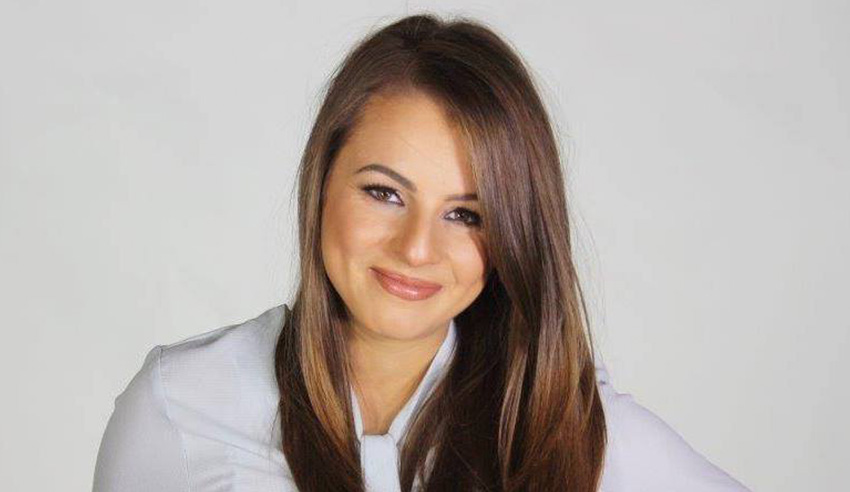The coronavirus pandemic has changed the game for all those seeking to be admitted to the legal profession in NSW and not in a good way, writes Stefanie Costi.

There is no doubt that we are living in unparalleled times. Everywhere we turn, we come face-to-face with the global coronavirus pandemic in one form or another.
Even so, lawyers in waiting received an email on 18 August 2020 from the Office of the Legal Profession Admission Board of NSW stating that:
“No admission ceremonies will be held for the rest of 2020, and all admissions will instead be formalised remotely… in light of current health advice and in order to protect the wellbeing of all involved in the ceremonies”.
Instead, the Office of the Legal Profession Admission Board of NSW offered admittees the following two somewhat coldly impersonal options: to complete the admission formalities remotely and receive their Certificates of Admission by mail (without the option of attending an admission ceremony in the future as it is not possible under law to be admitted twice), or to delay their admission ceremony until sometime in 2021.
No doubt, admittees understand that this decision was made for the protection, safety, and welfare of all those involved in admission ceremonies and the wider community. Still, it is a bitter pill to swallow considering all their hard work and years of study.
The question from many admittees is this: Why are our admission ceremonies treated differently to other functions that are still able to go ahead under the current regulations in NSW?
After all, the current NSW regulations say:
1. Venues can hold either a maximum of 300 people at any one time or one person per four square metres, whichever is lesser.
2. Corporate events can have 150 people in attendance or one person per four square metres, whichever is lesser.
3. Funerals, memorial services, wakes and religious gatherings can have 100 people in attendance or one person per four square metres, whichever is lesser.
If the problem with admission ceremonies is the number of people who can be seated in the courtroom and the capacity of the venue’s high-rise lifts to shuttle several hundred participants up to the Banco Court while adhering to social distancing as is suggested, surely the solution would be to conduct multiple, smaller, staged ceremonies over several days which could allow for safe social distancing measures (such as masks, mandatory sign-ins, physical distancing and temperature checks) so admittees and their support networks are not denied the privilege of attending this special ceremony?
According to Supreme Court of NSW Protocol – Court Operations – COVID 19 item 3.15, the Banco Court can hold five judicial officers, six legal practitioners and forty people in public seating at any given time to comply with physical distancing requirements.
Many admittees have felt obligated to accept completing their admission formalities remotely given that the delay of their admission ceremonies would inevitably impede their careers.
For Jaime-Lee Morrison, 21, this was not a risk she wanted to take:
“I proceeded with my admission formalities remotely so the clock could start to run on my post qualification experience, but I am deeply disappointed that I could not have a traditional ceremony with my family and friends present.”
Personally, I have chosen to wait until an admission ceremony can be held which is arguably the less popular option. The enormity of celebrating the milestone with my family and the special opportunity for my uncle (who is a lawyer) to move my admission far outweighs the rush to advance my career.
Fortunately for me, I also have a legal role lined up and the support of my family, friends and boss who have stuck by me (even though my admission was scheduled for March 2020). I appreciate that not everyone has this luxury.
Now, before anyone says it, I know there are worse things in the world that we should be focusing on. There always are. However, that does not and should not take away from the fact that new lawyers deserve to be celebrated in the same way that every other lawyer has before them.
In circumstances where many lawyers in waiting have had their university graduation ceremonies cancelled, signing the piece of paper without the benefit of attending an admission ceremony is a big deal.
All in all, the decision to cancel admission ceremonies for admittees seems to rest on weak foundations. There is not a lot of room for passion or emotion when dealing with the law. However surely being admitted to the profession after years of toil is a cause for celebration and recognition.
This achievement should not be laced with the disappointment and regret of not being able to celebrate with a traditional ceremony. Where are the fairness and justice in that?
Stefanie Costi is a law graduate at Fox & Staniland Lawyers.